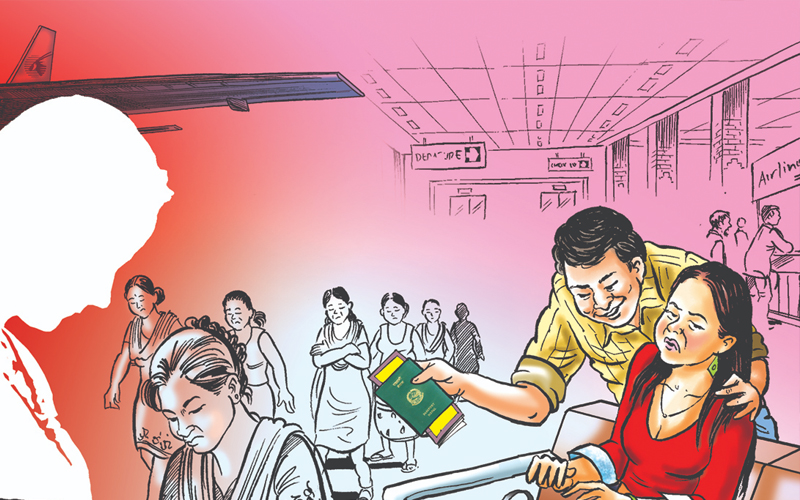As Nepal made progress in controlling human trafficking, so did policy reforms
A study has shown that the government of Nepal is making progress in controlling human trafficking despite the negative effects of the Covid-19 epidemic. According to the US Human Trafficking Report, 2021, Nepal has been working to raise public awareness against human trafficking, including steps to ratify the Palermo article, amend the Human Trafficking and Smuggling (Control) Act, and show progress in controlling human trafficking.
The challenges of controlling human trafficking have also changed due to the rapid development of information and communication technology. Due to the closure caused by COVID-19, human traffickers have increasingly used social media and mobile technologies to attract and mislead those in need. Keeping this challenge in mind, the report concludes that the control of human trafficking has become more effective as the government, in collaboration with international partners and local bodies, continues to amend laws and raise public awareness programs accordingly.
Many Nepalis, especially those affected by the 2015 earthquake and the current Covid-19 epidemic, are at risk of being trafficked. The webinar, held on the occasion of the United Nations International Day Against Human Trafficking, emphasized the need for strong involvement and participation of victims of human trafficking in meeting these challenges.
The webinar, organized under the slogan “Victims’ Voices Lead the Way”, emphasized that only voice, agency and leadership of victims of human trafficking and victim-centered programs can solve the problem of human trafficking.
Also in the webinar, the human traffickers who were assisted by our honor project shared their experiences of how they managed to escape from human trafficking and how they achieved prosperity. They are currently working in coordination with local committees and the government to assist in raising awareness, community involvement and transformation empowerment at the local level. The program discussed the growing crisis, new challenges and coordinated solutions to control human trafficking.
Adriana Hayes, Acting Mission Director of USAID Nepal, said: The network of human traffickers at the municipal and provincial levels, the involvement of the private sector with trafficked persons and the cooperation of various ministries and government agencies at the federal level are inspiring and I am proud to be a partner in USAID.”
Nathaniel Divan, director of development at the British Embassy in Kathmandu, said: “The crisis has an unequal impact on marginalized communities, including women and girls. The Covid-19 epidemic has put such groups at greater risk than ever before. By working with local governments and stakeholders, our Respect Project is ensuring the voice and leadership of victims in controlling human trafficking. I am pleased to see progress this year and the UK continues to work with governments and international partners to reduce the damage to crisis groups.
USAID and the United Kingdom have funded our Honor Project to help address human trafficking issues, especially in the field of foreign employment and recreation. The purpose of this project is to strengthen the Government of Nepal’s system to control human trafficking and to coordinate between the government, civil society and the private sector to strengthen the legal system to prosecute human traffickers under Nepal’s federal structure.
#human trafficking #Nepal made progress














प्रतिकृया दिनुहोस्